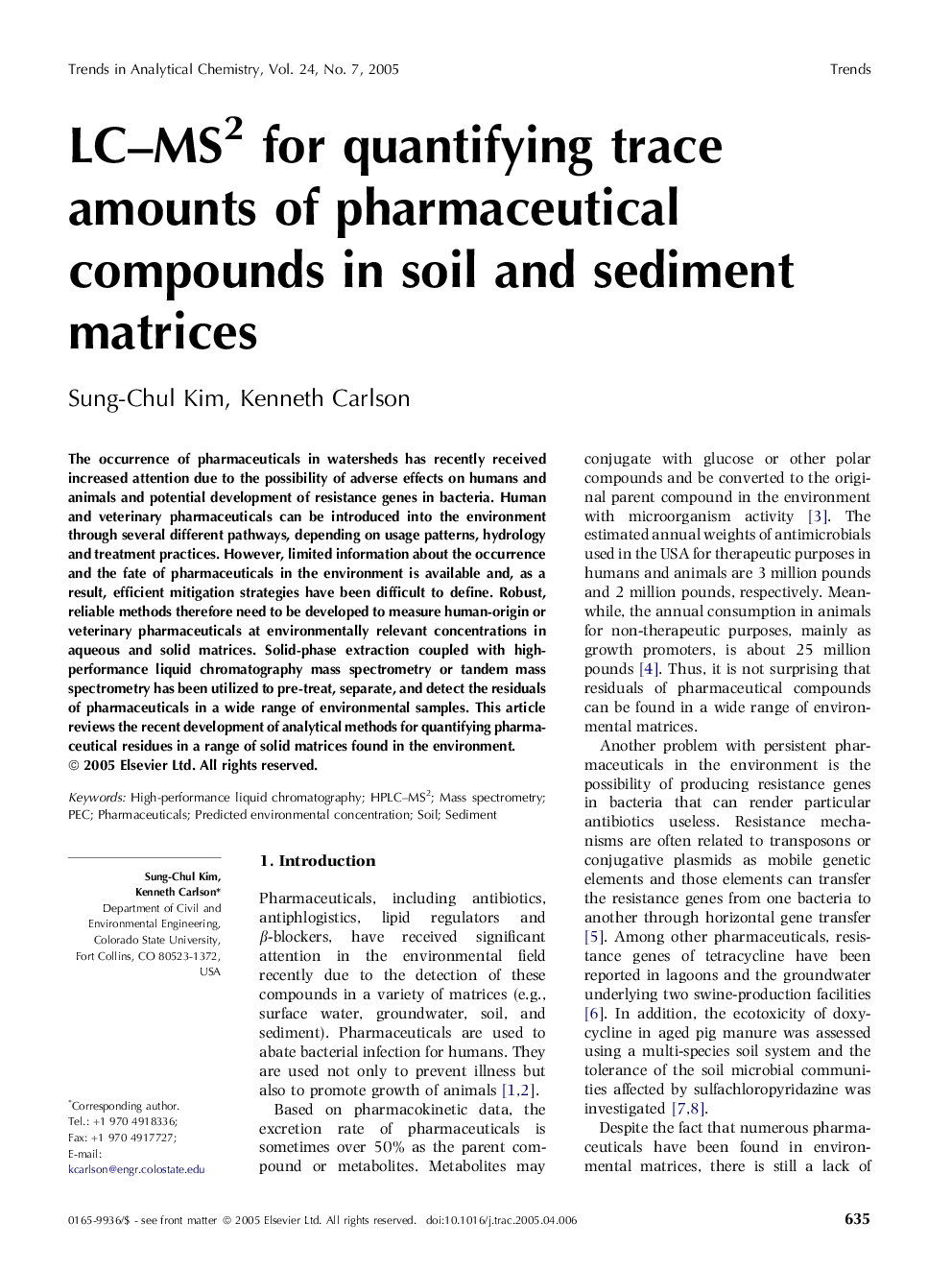| Article ID | Journal | Published Year | Pages | File Type |
|---|---|---|---|---|
| 10564385 | TrAC Trends in Analytical Chemistry | 2005 | 10 Pages |
Abstract
The occurrence of pharmaceuticals in watersheds has recently received increased attention due to the possibility of adverse effects on humans and animals and potential development of resistance genes in bacteria. Human and veterinary pharmaceuticals can be introduced into the environment through several different pathways, depending on usage patterns, hydrology and treatment practices. However, limited information about the occurrence and the fate of pharmaceuticals in the environment is available and, as a result, efficient mitigation strategies have been difficult to define. Robust, reliable methods therefore need to be developed to measure human-origin or veterinary pharmaceuticals at environmentally relevant concentrations in aqueous and solid matrices. Solid-phase extraction coupled with high-performance liquid chromatography mass spectrometry or tandem mass spectrometry has been utilized to pre-treat, separate, and detect the residuals of pharmaceuticals in a wide range of environmental samples. This article reviews the recent development of analytical methods for quantifying pharmaceutical residues in a range of solid matrices found in the environment.
Keywords
Related Topics
Physical Sciences and Engineering
Chemistry
Analytical Chemistry
Authors
Sung-Chul Kim, Kenneth Carlson,
